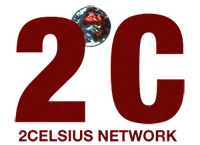Each country should perform a thorough control on nuclear for its citizens, merely because it is in its “courtyard”, EU Environment Commissioner Janez Potocnik stated at the European Journalism Centre’s seminar Climate Action in Budapest. “You want to be safe in your country, go through the EIA, respect the norms of monitoring of the International Atomic Energy Agency, and ensure maximum transparency”.

When a company Member State decides to build nuclear installations, it has to go through the Environmental Impact Assessment. Naturally, the state has to check if the installation is complying.
Every country decides on its own energy mix, commissioner Potocnik said. “Our common concern is safety”, he underlined just before the EU Environmental Council in Godollo, Hungary.
Absolute vagueness would characterize Commission’s approach on nukes. Furthermore, the strong pre-assumption is that governments are responsible and their territories are actually their “courtyards”. Corruption in the nuke field and weakness of EIAs as well as of control especially in Eastern Europe show a rather shy Commission that ignores the massive anti-nuke populace. The “courtyard”, many suggest, should be the whole EU.
Artur Runge-Metzger, Director for climate strategy and international negotiations, DG CLIMA, European Commission: “there is something in Europe, which is a holy Grail, and it’s called the energy mix. So it is not the Commission to say you must do this or that, we can do analyses and give you the numbers on how nuclear was treated. We respect the national decisions that were taken.”
Reactions in Europe were very strong against nuclear following Fukushima. However, Metzger added, one could not change a whole Roadmap after a couple of days (a.n.: the Roadmap 2050 was published a few days before the earthquake in Japan). “Currently there is a continuous opposition such as the moratorium in Germany, but the question is if this is going to lead to change of policy in terms of the phase-out. The model for 2050 in Germany, for instance, has no nuclear. All governments decided it was a transitional technology that will be gradually phased-out, therefore in 2050 in Germany there will be no nuclear in the energy mix.”
In other countries is different. In Poland, for instance, there were taken decisions to build nuclear capacity so that will be reflected in the model of 2050. Italy also wants to go in the direction of nuclear. There is no assumption that France will phase-out nuclear, it is a well established policy.
“The Commission is not prescriptive on that, it is a decision taken nationally, if there will be a decision against it it will be respected,” closed Metzger.
On July 22nd, the EU will come forth with a new directive on nuclear energy, Potocnik announced. The new directive will focus on safety measures for workers and locals. Energy Commissioner’s Oettinger suggestion to run the stress tests for all nuclear plants in Europe will also be part of the new norm.
Even though nuclear energy is part of the mix for many Member States, there is no provision related to the “cleanliness” of nuke. It is still considered “Carbon zero”, while the carbon footprint for uranium or plutonium mining is disregarded. Nuclear waste disposal and mining sterile, land-use change an no-go areas can also be converted in GHG emissions, but the Roadmap is rather silent about.
Stephan Singer, Director of Global Energy Policy, WWF International, concludes in a more radical manner, stating that the costly prices for nukes, hidden or overt, as well as its literal “unusefulness”, are to be summarized in an old German revolutionary slogan from the 70s – rather long, rhymed and… in German. Nonetheless, it contains the words “teuer” and “Scheisse”.



Be First to Comment